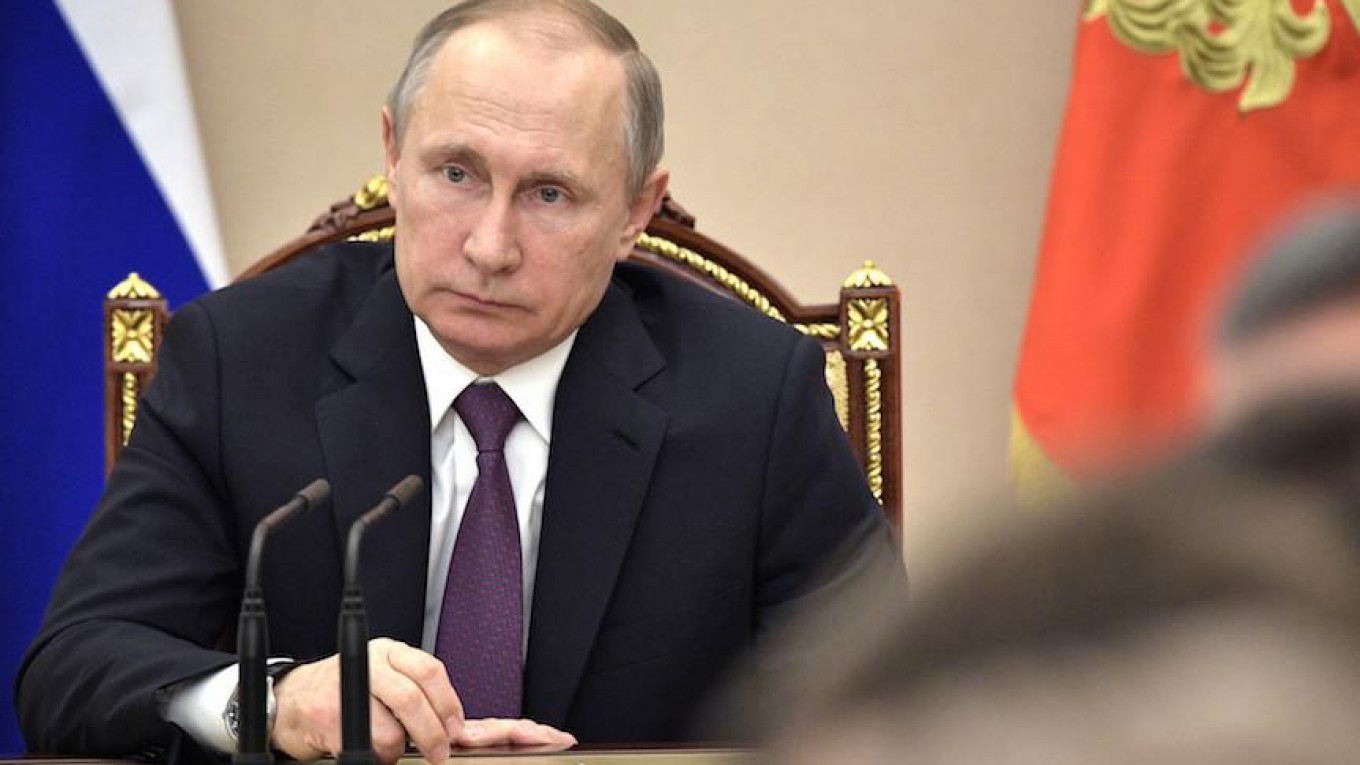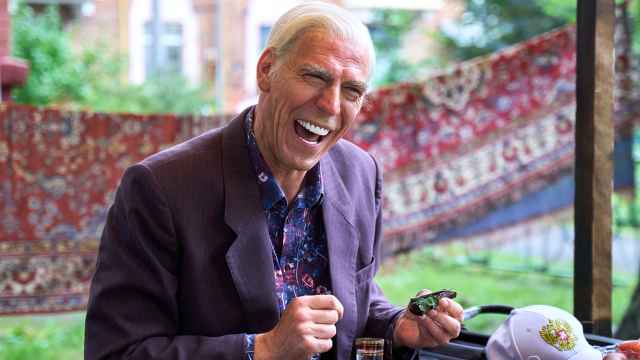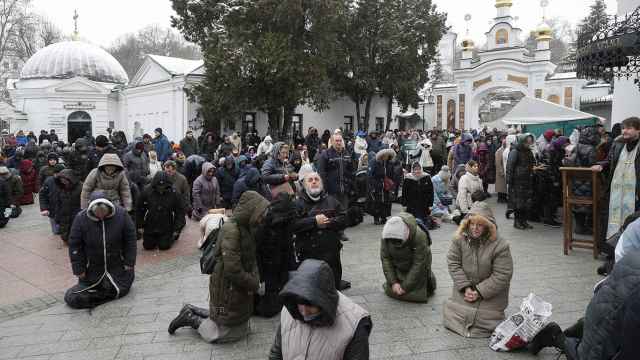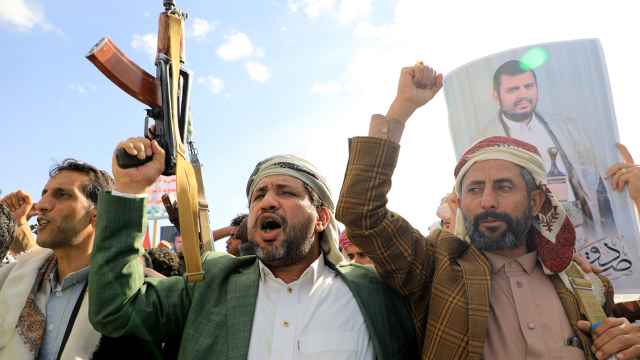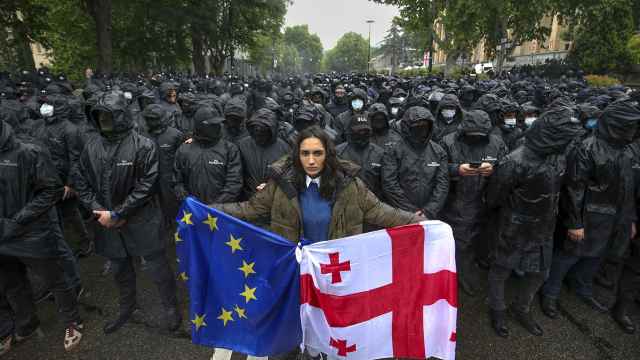Vladimir Putin danced circles around U.S. television host Megyn Kelly on June 5, deflecting her questions on Russia’s meddling in U.S. presidential election. But he did not deny it.
Before he sat down with Kelly, Putin told international news agencies that Russia never hacks on a state level. It is possible, he said, that some patriotic hackers rushed to avenge the wrongs that West does to Russia.
Maybe those hackers were from the U.S., Putin said. They disliked Hillary Clinton and dumped her emails to derail her. To twist the knife, the Russian president implied he might have read the top secret U.S. intelligence report on Russian interference in the election.
Putin redirected media attention to cyber hacking and the media frenzy over Russia’s ambassador to Washington, Sergei Kislyak. But this deflection masks the real issue: Russian attempts to discredit one U.S. presidential candidate, and bolster the one Moscow fancied.
It sidesteps the issue with potential legal consequences for Trump’s presidency — the possibility of collusion between the Trump campaign and Russian influence operation.
DNC and RNC computers — and John Podesta’s private email — are legitimate collection targets for any intelligence service, including Russia. This is why the FBI responded nonchalantly when they learned of Russia’s collection attempts in 2015. Besides, there were no hard secrets to steal and it is better to monitor your adversary to learn its methods.
The problems begin with the public release of the material, which was specifically tailored to negatively affect the Democrats only. The intelligence collected on Republicans was never released. The release was timed to have the greatest possible impact on the race — on the eve of the Democratic convention, an hour after the “Access Hollywood” tapes.
The release involved targeting Democratic demographics, particularly Bernie Sanders’ supporters, to suppress their turnout. It involved a massive Facebook and Twitter effort to have strategically timed “bots” blitz social media with links to pro-Trump, anti-Clinton stories. The bots seemed coordinated with the far-right news sites like Breitbart and InfoWars. The release may even have involved buying targeted Facebook ads. This third party activity was eagerly amplified by the Trump campaign on social media and at campaign events.
The question is whether there was any coordination between the leakers and Trump campaign staffers. Hillary Clinton argues: “the Russians could not have known how best to weaponize that information unless they had been guided by Americans who had polling and data information.”
Although Russian government agencies have a granular understanding of U.S. domestic politics, weaponizing hacked documents for maximum electoral effect required immersion into the campaign and interaction with campaign pollsters, strategists and social media warriors.
So far, there is no evidence of that. There was a Kremlin funded effort to send Russian political technologists to interview both presidential campaigns, but it does not look like a subversive operation. It is also worth noting that Jill Stein of the Green Party who ran essentially as RT’s candidate, got twice as many votes in the three decisive states than Trump’s advantage over Hillary Clinton.
Former CIA Director John Brennan told the House Intelligence committee in May that US intelligence agencies detected a series of suspicious contacts between Russian government officials and Mr. Trump’s associates. But he acknowledged that the contacts might have been benign.
It is also unclear who among the Russian officials were in contact with the Trump campaign. Ambassador Kislyak does not count, unless he actually requested U.S. policy changes in exchange for Russian illicit services before the election. His meetings with General Flynn and Jared Kushner during the transition are a different story, unrelated to the campaign. Those contacts might have been improper for U.S. officials, but not for the Ambassador.
Kushner’s request for a secret channel with the Kremlin is bizarre, but not unprecedented in the history of presidential transitions.
Kushner’s meetings with the Russian banker Sergei Gorkov of the state owned and U.S. sanctioned VEB bank may raise more red flags. But those meeting are only significant if sanctions relief were discussed in exchange for Russian loans to bail out Kushner’s real estate projects.
The Trump administration’s rush to lift sanctions on Russia right after the inauguration looks in this context suspect. But it could also be a reflection of genuine policy preferences made public during the campaign. FBI’s interest in Kushner’s role in running the campaign’s digital operation may be of more significance here.
That U.S. intelligence may have intercepted some conversations between Russian officials discussing ways to influence the future Trump administration and then, after the election, effusively congratulating themselves with Trump’s victory is so far merely an interesting anecdote without knowing precisely what Russians the US was listening to (members of the Russian parliament do not count).
This remains a murky story and it might be wise not to over connect the dots. But it is now consuming more and more of the US political space and has created tight constraints on Trump’s Russia policy, denying Moscow hopes for a quick change in tone with the US.
But with the disruption and distraction this is causing in Washington, it is still a net gain for Russia geopolitically. Anti-Russian hysteria in the U.S. media is good for Putin’s reelection in 2018.
A Message from The Moscow Times:
Dear readers,
We are facing unprecedented challenges. Russia's Prosecutor General's Office has designated The Moscow Times as an "undesirable" organization, criminalizing our work and putting our staff at risk of prosecution. This follows our earlier unjust labeling as a "foreign agent."
These actions are direct attempts to silence independent journalism in Russia. The authorities claim our work "discredits the decisions of the Russian leadership." We see things differently: we strive to provide accurate, unbiased reporting on Russia.
We, the journalists of The Moscow Times, refuse to be silenced. But to continue our work, we need your help.
Your support, no matter how small, makes a world of difference. If you can, please support us monthly starting from just $2. It's quick to set up, and every contribution makes a significant impact.
By supporting The Moscow Times, you're defending open, independent journalism in the face of repression. Thank you for standing with us.
Remind me later.



